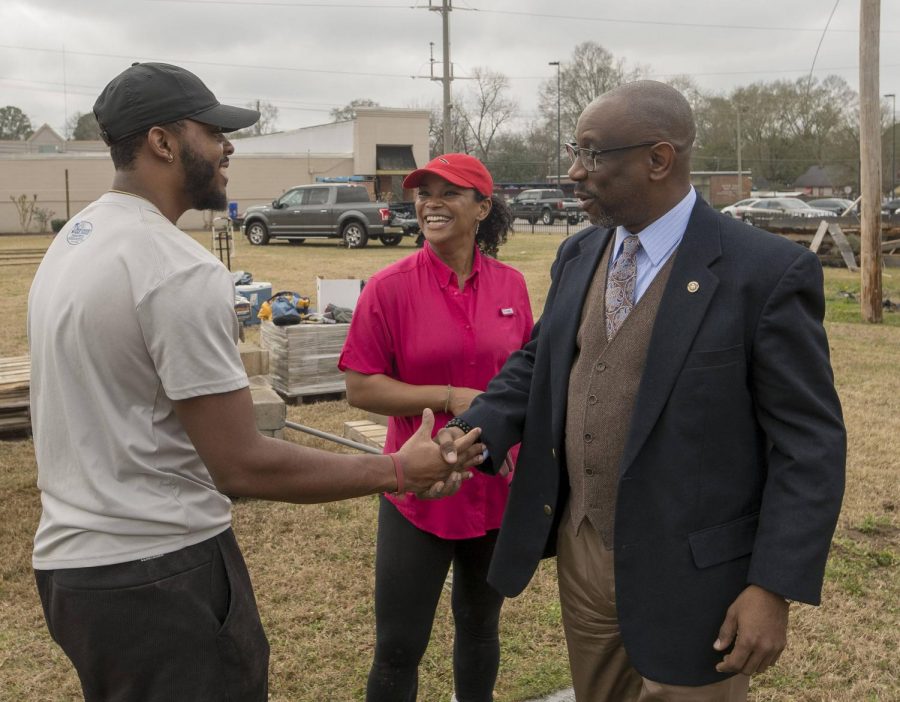ASU professor blazing trail in entomology, hopes to inspire more Black students in STEM
October 17, 2020

Alabama State University biologist Michelle Samuel-Foo is used to standing out.
At the University of Georgia in 2004, she was one of only two students of color in the entomology department where she studied how insects impact the environment.
She didn’t let that blunt her aspirations.
In March, her colleagues at the Southeastern Entomological Society of America nominated her as president, making Samuel-Foo the first Black woman to assume leadership of the branch in the body’s 130-year history. ESA is the world’s largest professional organization of entomologists.
In June, she became the first Black female entomologist to receive ESA’s Founders’ Memorial Award, one of its highest national honors. She is only the sixth woman to receive the recognition.
While her achievements are numerous, Black representation in the field leaves much to be desired. Black entomologists account for less than 3% of ESA’s membership according to last year’s figures. Samuel-Foo hopes to change that.
“When I was in graduate school … every class that I took I stood out,” she said. “But I used that to my advantage. I didn’t fall back into the shadows because I was the only one that looked like me in the room. I used it to build relationships with my professors.” They’re now her peers, she is quick to note.
Samuel-Foo was raised in rural Sangre Grande, Trinidad and Tobago where her parents grew cash crops. As a small girl she was tasked with fetching pails of water each day from a nearby river to tend them. On weekends she helped them sell the fresh vegetables at farmer’s markets on the small Caribbean island. Despite growing up farming Sameul-Foo said she never had an inkling she’d work in agriculture.

Her first love was writing. But as one of seven children, her family’s resources were stretched thin. When she graduated high school, she was unsure what her next steps would be.
That changed when she earned a scholarship for undergraduate study in the U.S. Samuel-Foo said she fell into what she was good at, which at that time was biology. After taking some masters courses on soil, plant breeding and insects, she fell in love with entomology and returned to her roots, so to speak.
Since joining ASU as an assistant professor of biology in 2018 she’s quickly made her mark.
“When I first came to ASU, I had this idea in my mind that the campus was just ripe for us to introduce sustainable agriculture to our students,” she said.
Her first effort was to apply for a specialty crop block grant with the Alabama Department of Agriculture. She got it. With the money, the university used half an acre of land to launch an urban teaching garden where Samuel-Foo instructs students daily on sustainable farming, pest management and hemp research.







